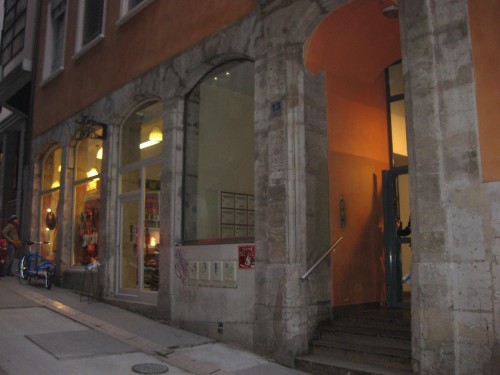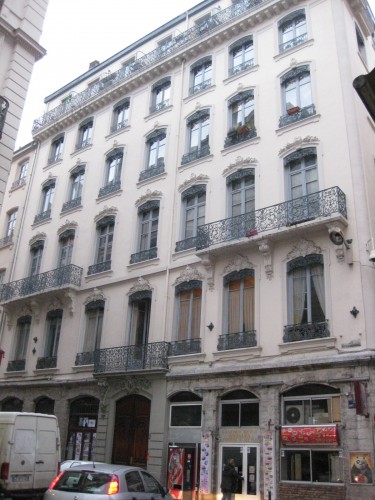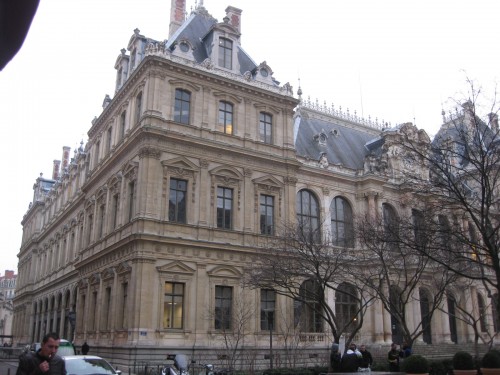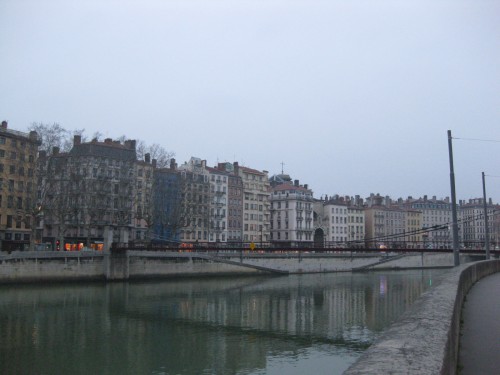Searching for the Dutch-Paris Escape Line
Three Categories of Passeurs
In the previous post I shared the reflections of Frits, a Dutch university student who smuggled Jews and Engelandvaarders over the border from the Netherlands into Belgium for Dutch-Paris. As far as passeurs go, Frits was unusual. Generally speaking, you can divide up passeurs into three classes: volunteers, professionals and criminals.
Frits was a volunteer who accepted no payment for helping the persecuted to cross a border from one country to another. He was unusual among volunteers in that he did not live on the border and had not grown up on the border. On the Swiss border it was possible for a passeur to literally live on the border, with the front door in France and the garden gate in Switzerland. But most volunteer passeurs lived close to the border and possibly had perfectly legal passes to cross it. Perhaps they lived in Belgium but worked in the Dutch city of Maastricht, or they lived in France but owned fields in Switzerland or went to university in Geneva. Such men and women were unquestionably part of the Resistance.
The second class of passeurs were the professionals: men (mostly) who charged clients for showing them the way over a border. Some of these men made their living by smuggling and simply changed Read the rest of this entry »
- 0 Comments
- Tags: Border Crossings
A small handful of the men and women who risked their lives in their early 20’s as part of Dutch-Paris returned to the crusade to preserve humanitarian values in their retirement. Fortunately, Europe was not once again under occupation. But they felt that young people did not understand what had happened in World War II and, more importantly, that it could happen again. So they gave interviews to oral historians about their roles in the Resistance or they gave lectures about it, mostly to student groups.
One of them, a Dutchman whom we’ll call Frits, acted as a passeur. He smuggled many people, including Jews and Engelandvaarders (young men wanting to join the Allied military) over the border from the Netherlands to Belgium and often all the way to Brussels. He also carried documents back into the Netherlands and sometimes brought the luggage of people who could not carry their own suitcases as they sprinted through the border zone.
Fritz stressed that he and his colleagues were rank amateurs. They were university students who didn’t like what was going on and were willing to do something about it. He and his friends thought about carrying guns but Read the rest of this entry »
An Unaffiliated Resister
Although Allied governments certainly tried to organize and control “The Resistance”, especially the armed Resistance, it was a fundamentally grass-roots movement. You became a resister by taking action where you thought necessary and putting yourself at risk. That holds true for people who started resistance work because a friend or acquaintance asked them for help. As a result “The Resistance” included large scale and even international organizations such as Dutch-Paris as well as individuals working entirely on their own. The French government recognized this by granting pensions and honors to a whole category of “non-affiliated resisters” whose actions outside of any known network could be documented and verified.
In my research I have come across at least two women who spent years helping fugitives in France without belonging to any Resistance group. Once of these was a Mme K who ran a family boarding house in Paris. Her last name and her story suggest that she or her husband may have had family ties to Belgium.
Starting in 1940 a priest from an international order which had a mother house on the rue des Sèvres in Paris sent young men to Read the rest of this entry »
- 0 Comments
- Tags: France, women
Help to Dutch Fugitives in Lyon after the Liberation
The last post showed photos of some of the places that Dutch-Paris used in Lyon, France. Dutch-Paris was hardly the only Resistance group operating in Lyon; they weren’t even the only Dutch resisters in the city. But the circle of people willing to risk themselves in the humanitarian resistance was small enough that the Dutch engaged in rescuing Jews and other persecuted people in Lyon knew about each other and cooperated even if they did not all belong to the same group.
Humanitarian efforts among the Dutch in Lyon centered on the Dutch consulate there, which was a natural destination for fugitives who had made their own way into Vichy France. Weidner met many of the people whom Dutch-Paris escorted to Switzerland through the consulate. But Weidner was not the only Dutch expatriate living in the Lyonnais who Read the rest of this entry »
- 0 Comments
- Tags: France
Dutch-Paris Sites in Lyon
Before Dutch-Paris existed, John Weidner started his Resistance work by helping Dutch Jews who made their own way to Lyon. Weidner and a French friend owned a textile shop there on the rue du Griffon. He himself had to abandon that shop in September 1943 when the Gestapo came calling for him there. But Dutch Jews were using it for shelter as late as February 1944. It was a small shop on a narrow street running uphill from the large plaza in front of the grand mairie (city hall). Today it looks like this and lies just around the corner from a police station.
Being a bachelor whose parents and sisters lived in different occupation zones, Weidner lived in a hotel on the rue Sainte Catherine, a short walk from his shop. Weidner traveled extensively for the import/export branch of the business, so he probably wasn’t home very often. He used both the hotel and his usual business travel to build and run Dutch-Paris. This is what the front of the hotel looks like today.
Many of the Dutch Jews whom Weidner and his colleagues helped did not know Weidner before they arrived in Lyon. Instead, they went to the Dutch consulate or its refugee assistance office in this solid building on the rue de la Bourse. The consulate offered money, legal assistance and help navigating the requirements of French law and bureaucracy. Occasionally the staff sent people to Weidner with the hint that he could get people into Switzerland, which, of course, he could.
All of these buildings and the lodgings of the most active member s of Dutch-Paris in Lyon lay in the Presqu’île neighborhood of the city between the rivers Saône and Rhône. This was mostly just coincidence, but it did make running a clandestine organization easier at a time when ordinary people used public transportation or their feet to get around and curfews made being on the streets at night dangerous. Fortunately for our resisters, many of the trains they used ran in and out of the small gare du Perrache at the tip of the Presqu’île. It’s not such a long walk from that station to any of the Dutch-Paris places, but it would have been an almost impossibly long walk from the gare du Lyon that today’s travelers use, especially after curfew.
- 0 Comments
- Tags: France, John Henry Weidner
Why Passeurs Aren’t in the Archives
In the last post I said that two categories of government agencies started collecting the history of the Resistance immediately after the war. The first were those bureaucracies charged with distributing pensions, medical benefits and the like to resisters. Before disbursing any money, however, they first established each resister’s bona fides. Those files are a treasure trove of information about how the Resistance functioned, but the bureaucracies kept them to themselves until very recently.
The second category of government agency that was gathering information about the Resistance was officially sponsored historical institutes dedicated to the war. Of course, they were interested in many aspects of the war in their own country, but the Resistance loomed large in their investigations, especially in the early years. In France the Comité d’Histoire du deuxième Guerre mondiale (CH2GM, Committee for the History of the Second World War) had correspondents in every department. These correspondents had privileged access to archives to answer questions posed in Paris and many of their reports remained inaccessible until recently.
In the Netherlands the Rijks Instituut voor Oorlogsdocumentatie (Royal Institute for War Documentation) now the NIOD instituut voor oorlogs-, holocaust- en genocidestudies (NIOD Institute for War, Holocaust and Genocide Studies), sent investigators to carry out interviews and gather documents to figure out what had happened during the war. Its director, Lou de Jong, wrote a multi-volume history of the war in the Netherlands based on those investigations. It has become a national depository for non-governmental documents about the war such as diaries and family photographs.
If you add these two war-specific sources of documentation – the pension paying bureaucracies and the historical institutes – to the garden variety government archives that house Read the rest of this entry »
Although resisters did not, as a rule, keep records during the war, various government agencies rushed to create files on them immediately after the war. These agencies fell into two groups: those interested in organizing information for the sake of dispensing money and those interested in figuring out what went on during the war.
The first group includes the American and British air forces, the French army and the Belgian and Dutch ministries of social affairs. The Americans and British wanted to thank civilians who had helped their men evade the enemy. But they only wanted to award medals, food packages, widow’s pensions and the like to those who actually did help, so they required enough documentation to support any such claim. In 1944 the French army already included a huge bureaucracy that administered veterans’ benefits for the First World War, so they folded resisters into that. Again, they were only willing to pay pensions to bona fide resisters and so required proof of resistance. The Dutch and Belgians entrusted benefits for resisters to Read the rest of this entry »
How Much did it Cost to get the Courier out of Jail?
In the previous post I talked about how cigarettes were used to buy things on the black market and bribes during the war. Although it looks like some Dutch-Paris couriers may have used cigarettes for petty bribery, for the most part Dutch-Paris relied on cash for both the black market and bribes.
Dutch-Paris, of course, could not remain aloof from the black market in food because they had to feed fugitives who did not legitimately figure in the rationing scheme. In Paris they had connections to certain Dutch farmers who had moved to France before the war. These men sold them food, either to feed people hiding in Paris or to make up food bundles to take on clandestine trips over the Pyrenees to neutral Spain. Being patriotic, the Dutch farmers did not charge the full black market prices for this food. For the most part, however, Dutch-Paris paid huge sums to restaurants selling black market meals.
Similarly with bribes, Dutch-Paris tended to use cash whenever possible. For instance, in April 1944 a new courier crawled under the barbed wire from Switzerland to France with Jean Weidner. The new guy forgot to look both ways before stepping onto the road and walked right into Read the rest of this entry »
- 0 Comments
- Tags: arrests, John Henry Weidner
The Cost of Cigarettes
One of the items to show up on the expense reports of two of the Dutch-Paris couriers is “cigarettes.” For example, on 30 June 1944 a couriers spent 1,000 French francs on ten packets of cigarettes. On first glance, it’s hardly surprising that anyone smoked during the Second World War, let alone men traveling through occupied territory with false documents and carrying microfilms full of military intelligence.
But they did not submit the costs of their daily newspaper or the shoe shines that were essential to their disguises as legitimate businessmen. So why would the Dutch government-in-exile effectively accept paying for these men’s cigarettes? And why do cigarettes figure on only two of the courier’s expense reports? Furthermore, why do cigarettes only appear in late 1943/early 1944 and the summer of 1944? Did these men stop smoking for a while as they patched up the network after many of their colleagues had been arrested over the course of several weeks? It seems unlikely.
There must be something more to these cigarettes. One possible explanation is that they bought the cigarettes for the men they were escorting. So the cigarettes from January 1944 were smoked not by the resisters but by Allied aviators being smuggled across western Europe by the resisters. But they did not buy cigarettes during every convoy of airmen, let alone every convoy of Engelandvaarders.
Another avenue of explanation lies in the fact that Europeans used cigarettes like currency during the war, and especially at its end. The price of cigarettes fluctuated over time and locale, but they were accepted everywhere, unlike currency. You could only buy things with Belgian francs in Belgium, but you could buy things with cigarettes anywhere. In fact, people lost so much confidence in the wartime currencies, that there were places where traders accepted nothing but cigarettes (although the economy never got that grim in western Europe).
This might explain why the cigarette purchases appear only intermittently. Better quality cigarettes had greater trading power but were harder to come by. Perhaps the couriers bought the good cigarettes when they had the opportunity, which was at only certain times.
If the couriers bought the cigarettes as a form of currency, then there are several ways they may have used them. They might have given them to the men they were sending over the Pyrenees as a form of pocket money for them to use after they left Dutch-Paris’s care and made their way into Spain. Or they might have given them to families in hiding to use for bartering.
Or the couriers might have used the cigarettes as a convenient form of bribery to grease the many palms that inspected their false documents, sold them train tickets or black market meals or hotel rooms, or let them out the back doors of train stations or cafés. Cigarettes could also be used as discreet thank yous for the myriad people who helped Dutch-Paris through their jobs, by providing information, shelter or rationed goods.
Say you happened to be walking along the French side of the Swiss border with some mud on your knees from crawling under the barbed wire and a gendarme asked you for your papers, what would you do? If your false documents were good, as Dutch-Paris documents were, it could go two ways. If you acted nervous, the gendarme might get suspicious and take you in for questioning. But if you remained calm, maybe lit up a cigarette and offered one to the gendarme like a copain, commented on the weather and acted like you understood that the man was only doing his duty but you regretted that he had to waste his time like this because there was nothing suspicious about you, chances were good the gendarme would let you go. The Dutch-Paris couriers were masters at cultivating such friendly encounters. They even chatted to German officers in trains about morale at home in the Third Reich.
After the war no one concerned thought that the cigarettes needed any explanation or perhaps that they were important enough to explain. I suspect that they used the cigarettes that they charged on their government expense reports to buy some thing or some one’s good will. If they smoked any cigarettes themselves, they undoubtedly paid for them with their own money.
Money was as critical for Resistance as it is for almost everything else. But for the most part resisters did not keep careful accounts of it. Most resisters did not have the time or the means or a safe way to keep accounts. After all, receipts and expense sheets could be used as incriminating evidence if the enemy captured them. Nor did most resisters have sufficient motivation to count the pennies. They were risking their lives for the greater good, not trying to turn a profit.
Dutch-Paris, however, did keep some accounts. It came naturally to the majority of its leaders who were businessmen. And after they started receiving financial support from the Dutch government-in-exile, they became accountable to the government for the expenditure of its funds. Furthermore, they had a safe place to keep some of the accounts in Switzerland. Unfortunately the accounts that were kept in France or Belgium were either burned or captured.
The accounts kept in Switzerland were mostly expense accounts submitted by the main Dutch-Paris couriers. They tell us many things. Obviously, they record prices. The price of a passeur over the Pyrenees. The price of a rucksack in Toulouse at the end of the war. How much money Dutch-Paris paid to a certain restaurant to feed fugitives. How much a train ticket between Paris and Annecy or Paris and Brussels cost.
The accounts also give us the chronological structure of the Dutch-Paris leadership. They record the date that a courier paid a passeur to take so many American airmen over the Pyrenees, and sometimes even provide the names of the aviators. From looking at his expense reports, I can tell you what city a certain courier was in for almost every day between October 1943 and September 1944. More than any other documents, they testify to that man’s dedication and almost incredible skill.
The more general overview accounts help to explain how much money Dutch-Paris distributed across France and Belgium to support Jews and others in hiding. They also help to explain how the resisters raised that money and how they exchanged Swiss francs for Belgian or French francs and transferred the cash across borders at a time of repressive currency controls.
The financial records do not explain Dutch-Paris, but they provide details not found in other documents and give them a necessary structure.





